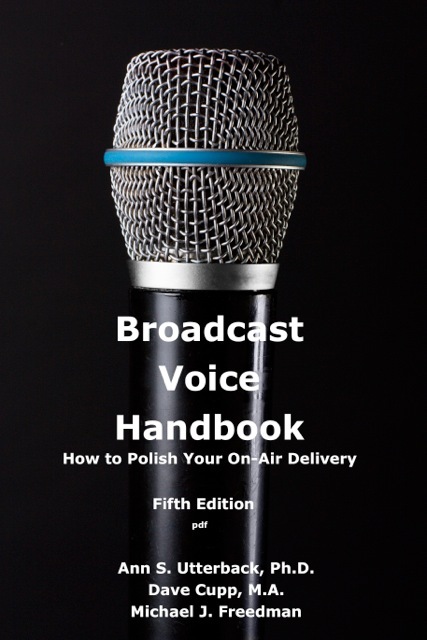|
VOCAL HEALTH How To Survive A Marathon At The Microphone: Prioritize, Plan, Pace April 18, 2017  By Ann Utterback By Ann UtterbackVoice Specialist and Author, Broadcast Voice Handbook Recent terror attacks reminded me that during crises, television anchors and reporters are often on the air for more hours than on a normal day. Many of my clients over the years have found themselves in this situation whether during a crisis or a weather event. Iíve counseled them on how to take care of their voices during this time. Voice over artists often find themselves in similar situations if they have to complete a job on a short deadline or have a lengthy script or book to narrate. So how do you survive a marathon at the microphone? I have an easy process for you to remember. Itís based on three Pís:
Look at your week prior to the voicing event (unless itís something sudden) and prioritize your needs. For instance, sleep is a necessity when you have a marathon ahead of you. Scrub any evening social events that might cut into your sleep time (come on, itís only a weekÖ). Also, increase your exercise so that youíre in top shape when the work begins and have less stress because of the exercise. On the day of the event or the start of your project, line everything up to support you through it. 2. PLAN Plan the day of the marathon voicing just as you would if you were an athlete. Take survival gear with you - like plenty of water to drink. Have enough food to keep your energy up. This could be protein bars, some kind of meat, tuna, hard-boiled eggs, or any other food that is high in protein. What you donít want, though, is food high in sugar like donuts (sorryÖ.), bagels, or muffins. They will cause a spike in blood sugar that will leave you feeling fatigued 20 minutes after you eat them. Thatís why protein is best. It helps you focus and gives you a steady release of blood sugar to keep your energy up. Also avoid too much caffeine - which may make it hard to focus your thoughts - and dairy products, which may produce excess mucous in your throat. 3. PACE YOURSELF Finally, pace yourself during the marathon at the mic. You want to keep your vocal energy consistent through the entire time, and if you sit too long, your blood tends to circulate poorly. This can make your vocal energy plunge. If possible, take breaks often. Go outside if you can, and walk around to relieve the stress of being in the studio. If you canít go outside, at least stand and stretch often and have a few bites of your protein snack along with some water. Youíll sound better and your voice will last longer! --------------------------------------------  ABOUT ANN ABOUT ANNAnn
S. Utterback, Ph.D., is a voice specialist with more than 40 years
experience and has helped hundreds of people make the most of their
voices, working with broadcasters, voice over artists and podcasters
around the world. An author of eight books and over 50 articles on
voice, her Broadcast Voice Handbook is a classic textbook offering more advice on
how to improve your voice over performance.
Web: http://OnlineVoiceCoaching.comClick for: Broadcast Voice Handbook SEE MORE HELPFUL VOCAL HEALTH ARTICLES HERE |
Tell Us What YOU Think!
Please Note: Since we check for spam, there will be a slight delay in the actual posting of your comment.
Comments
No comments have been posted yet. Hurry, and you could be the first!







.png)


click for new article alerts